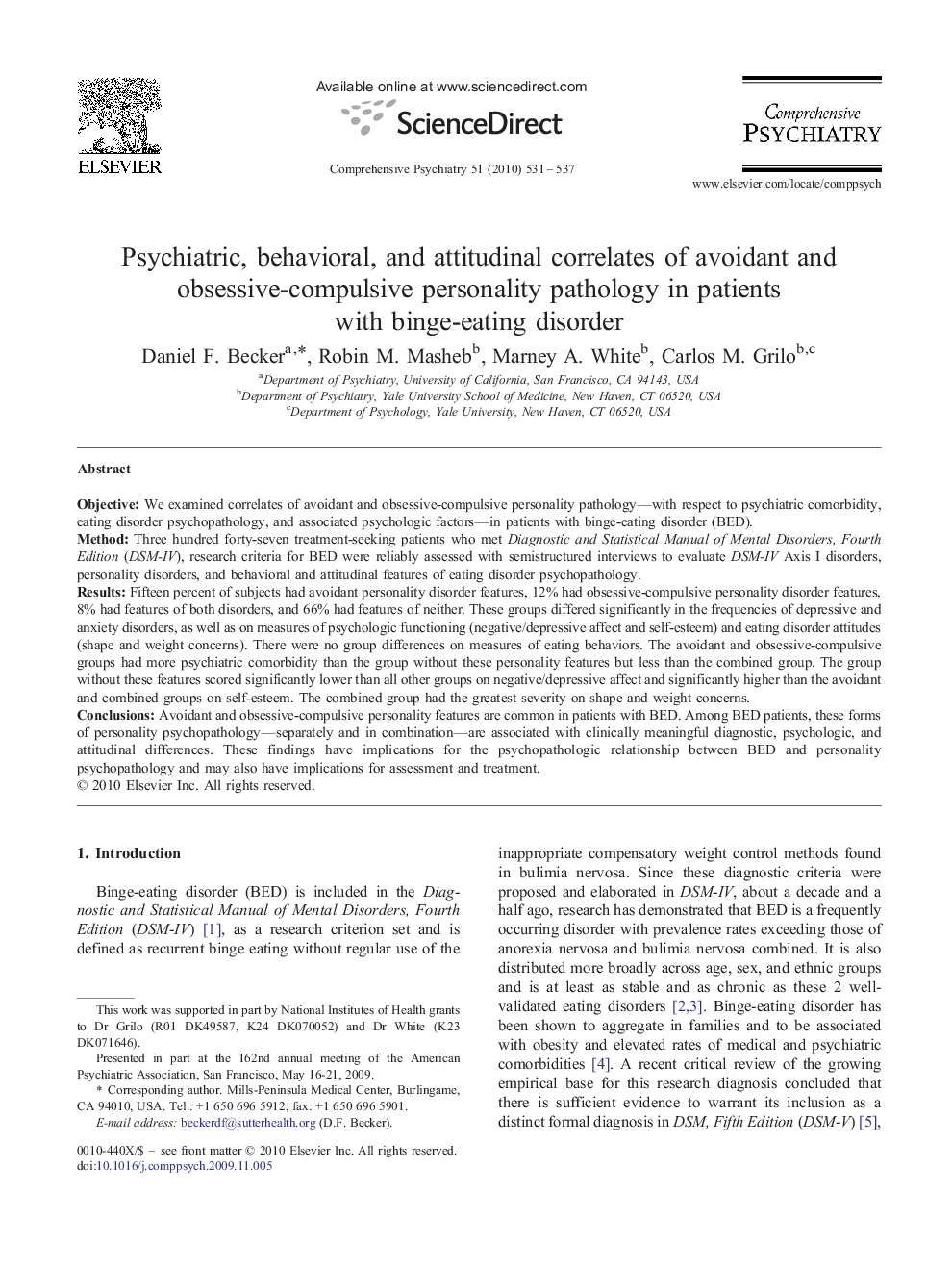| کد مقاله | کد نشریه | سال انتشار | مقاله انگلیسی | نسخه تمام متن |
|---|---|---|---|---|
| 318080 | 538279 | 2010 | 7 صفحه PDF | دانلود رایگان |

ObjectiveWe examined correlates of avoidant and obsessive-compulsive personality pathology—with respect to psychiatric comorbidity, eating disorder psychopathology, and associated psychologic factors—in patients with binge-eating disorder (BED).MethodThree hundred forty-seven treatment-seeking patients who met Diagnostic and Statistical Manual of Mental Disorders, Fourth Edition (DSM-IV), research criteria for BED were reliably assessed with semistructured interviews to evaluate DSM-IV Axis I disorders, personality disorders, and behavioral and attitudinal features of eating disorder psychopathology.ResultsFifteen percent of subjects had avoidant personality disorder features, 12% had obsessive-compulsive personality disorder features, 8% had features of both disorders, and 66% had features of neither. These groups differed significantly in the frequencies of depressive and anxiety disorders, as well as on measures of psychologic functioning (negative/depressive affect and self-esteem) and eating disorder attitudes (shape and weight concerns). There were no group differences on measures of eating behaviors. The avoidant and obsessive-compulsive groups had more psychiatric comorbidity than the group without these personality features but less than the combined group. The group without these features scored significantly lower than all other groups on negative/depressive affect and significantly higher than the avoidant and combined groups on self-esteem. The combined group had the greatest severity on shape and weight concerns.ConclusionsAvoidant and obsessive-compulsive personality features are common in patients with BED. Among BED patients, these forms of personality psychopathology—separately and in combination—are associated with clinically meaningful diagnostic, psychologic, and attitudinal differences. These findings have implications for the psychopathologic relationship between BED and personality psychopathology and may also have implications for assessment and treatment.
Journal: Comprehensive Psychiatry - Volume 51, Issue 5, September–October 2010, Pages 531–537